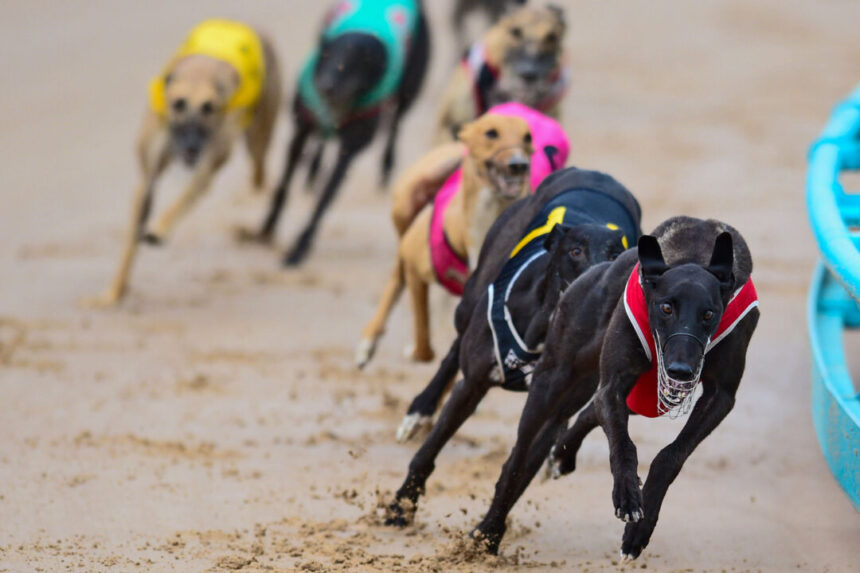A controversial new track proposal near Sale has sparked debate between animal welfare activists and industry leaders. The Sale Greyhound Racing Club’s plan to develop a race-capable “straight track” in Kilmany has drawn criticism from groups like the Animal Justice Party (AJP) and Animals Australia, who argue that the greyhound racing industry is ethically and financially unstable.
Despite the backlash, Greyhound Racing Victoria (GRV) has expressed support for the project, citing the potential benefits of a straight track for the safety of the greyhounds. The club plans to have the track trial-ready within three years, with hopes of racing within 3-5 years pending approvals and funding.
CEO Adrian Scott of Sandown Greyhound Racing Club believes the new facility could be a positive development for the region, emphasizing the benefits of a safer straight-track facility. However, critics like the AJP have raised concerns about GRV’s financial troubles and the ethical implications of expanding greyhound racing operations.
Members of the Sale Greyhound Racing Club, like committee member Dawn Johnston, are optimistic about the Kilmany facility, highlighting the community support and job opportunities it could bring. While facing criticism, the club is focused on promoting education and understanding about the care and love that greyhound breeders have for their dogs.
Industry Figures Defend Record on Injuries
They have the opportunity to witness firsthand what is happening.
The AJP expressed disappointment with the number of on-track greyhound fatalities during the 2023-24 financial year, stating that in 2023-23 alone, 619 greyhounds—nine percent of total racers—died from injuries, illness, or natural causes. This represents the highest euthanasia and injury rates in three years.
The AJP argued that the proposed Kilmany track would only add to these statistics, causing more suffering and death to dogs in the community.
GRV responded by highlighting their efforts in injury prevention, mentioning a Project Steering Group consisting of expert epidemiologists and veterinarians investigating risk factors for specific serious race injuries unique to greyhound racing in Australasia. Their goal is to identify these risk factors to reduce the incidence of racing injuries.
On the topic of the Greyhound Adoption Program (GAP), the AJP criticized the program’s low figures, stating that rehoming costs had increased to $7.2 million, yet 131 fewer dogs were rehomed compared to the previous year.
However, statistics from GRV’s GAP activity for 2023-24 showed that 1,171 greyhounds were adopted, slightly down from the previous year. But the number of greyhounds rehomed for the first time increased to 2,581 in 2023-24.
Despite the criticism, Scott praised the GAP program, calling it one of the best animal welfare programs in Australia and commending the direction it has taken in rehoming greyhounds.





